The taste of fresh fruit and vegetables is unbeatable, especially coming from your own backyard. Dina Feldman, co-founder of Sowing Seeds of Change, started her gardening journey in 2007 and fell in love with the practice, catching the sustainability bug.
“When I had my first tomato that I grew and my first cucumber that I grew and it tasted nothing like what I bought in the store, I was totally hooked,” Feldman said. “From there I started composting, and then from there I started making my own cleaners. And so it just kind of evolved into living a more sustainable lifestyle.”
But sustainability alone didn’t bring Sowing Seeds of Change to life. In May 2020, Feldman was doing a food rescue and met her co-founder Lindsay Smith. They instantly connected over their shared love of sustainability and growing their own food. They shared a background of working with disabled youth as Feldman had worked as a behavior analyst for 20 years and Smith had worked as a special education teacher for 10 years.
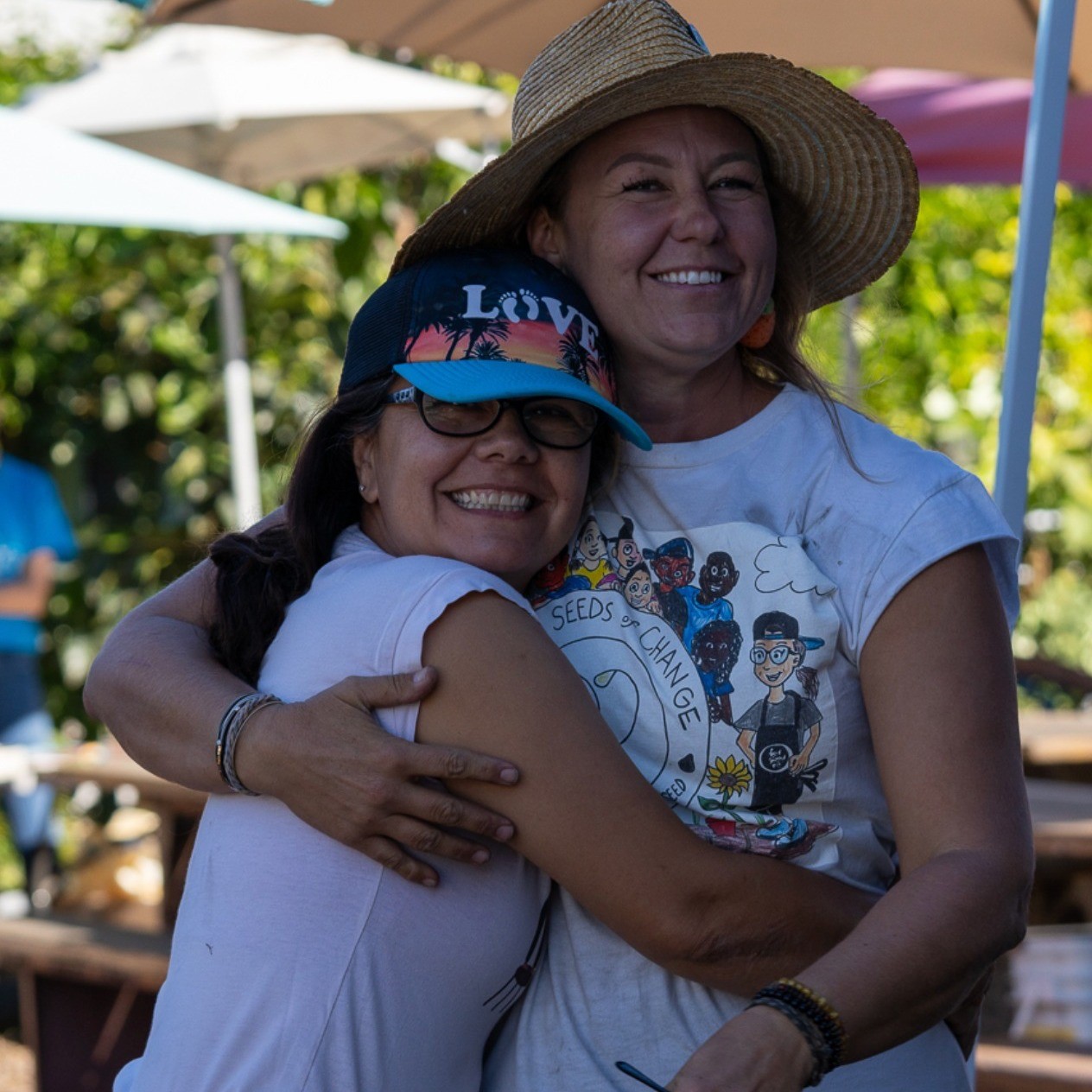
They even found they had a similar idea of an urban farm where young adults with disabilities and foster youth could learn about growing food and local food systems. Feldman wrote a business plan and they pitched it to the city, securing their plot and officially starting Sowing Seeds of Change.
“Our tagline is, it all starts with a seed. We started having this conversation with the seed and then we kept the conversation, started reaching out to community members and people that would listen,” Feldman said. “And you could say that’s, like, watering the seed and giving it the nutrients that it needs. And then eventually, it grew to become what it is.”
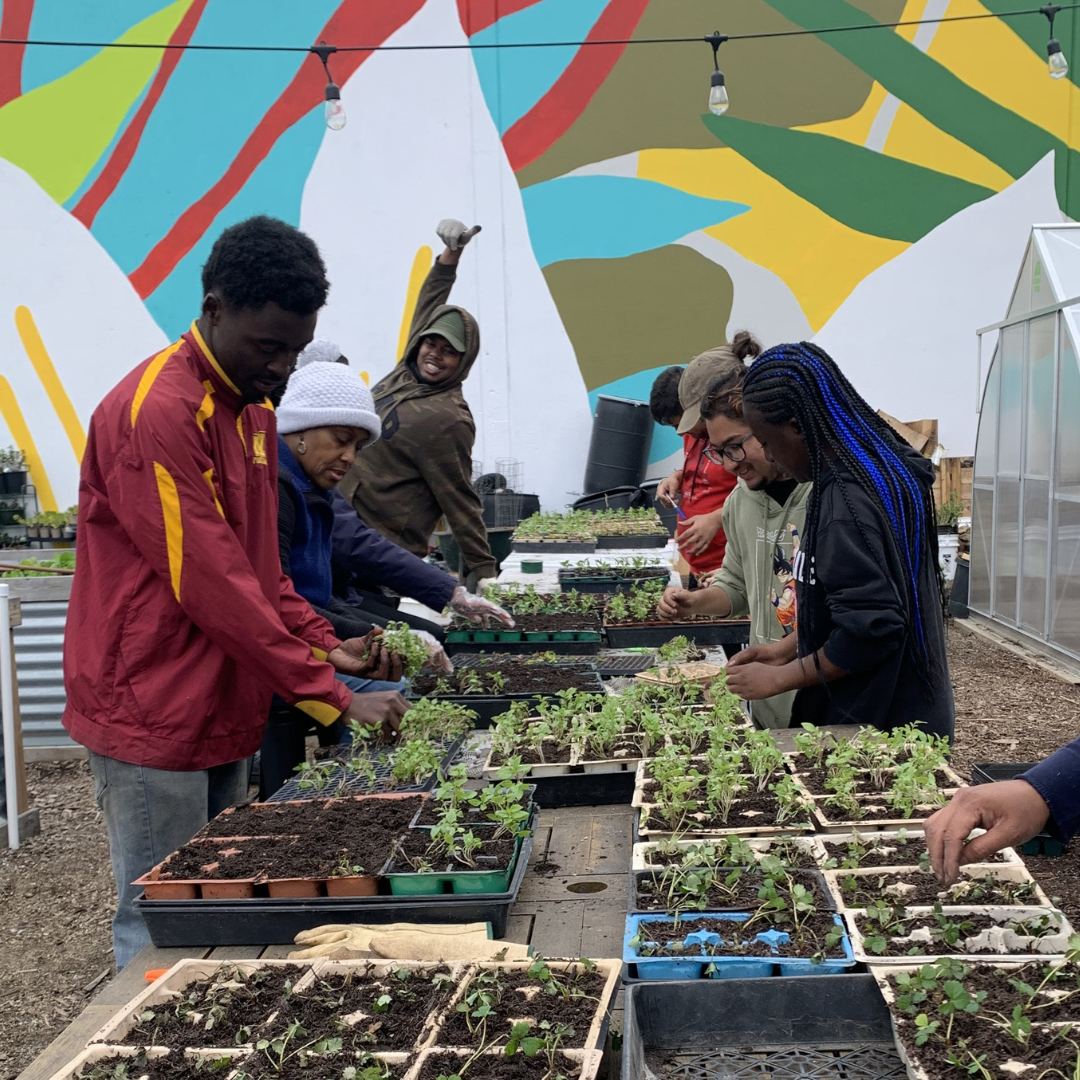
Through Sowing Seeds of Change, Feldman and Smith hope to help neurodivergent and disabled young adults and transitional-age foster children develop the soft and hard skills they need to be competitively employed. Through the sustainable agriculture program, participants learn about concepts and practices for organic gardening and small-scale farming.
They can then focus on crops, flowers or nurseries to develop expertise in that field and develop job skills at job readiness and entrepreneurial training. Beyond logistical skills, Feldman and Smith want their students to feel empowered, educated and more connected to their food system.
“There’s a lot of preconceived notions about what people who are neurodiverse, on the spectrum; a lot of opinions and stigma around what they can and can’t do,” Feldman said. “And so what we try to teach our students is to rise to the level of expectations that we set for them and support them and so that they believe in themselves more than when they were walking in.”
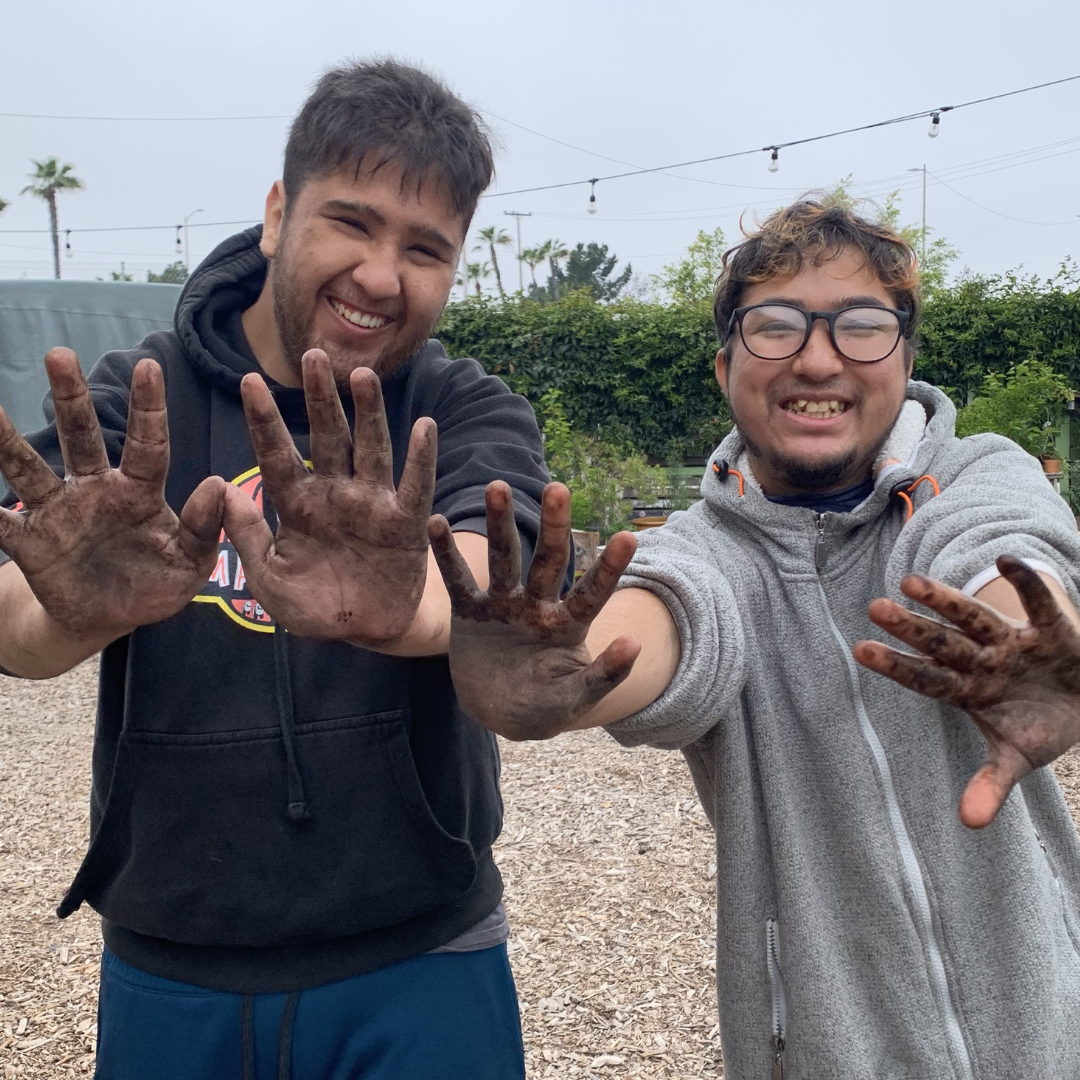
Sowing Seeds of Change offers agricultural training and workshops to people of all ages who are looking to learn and gain experience in practical gardening, food growing skills, shrub making, flower arrangements and fermenting among other things. While they may focus on the neurodivergent and foster youth, spreading knowledge about sustainable living is still a primary mission of Sowing Seeds of Change.
Feldman loves it when people share changes they’ve made after visiting their farm like taking their own food containers places or switching from paper napkins to cloth napkins. When it comes to starting a sustainable living journey, Feldman says to reflect on the reasons for picking up sustainable habits; finding your “why.” She believes that if you pick up sustainable living habits because someone said so, that in itself is not sustainable.
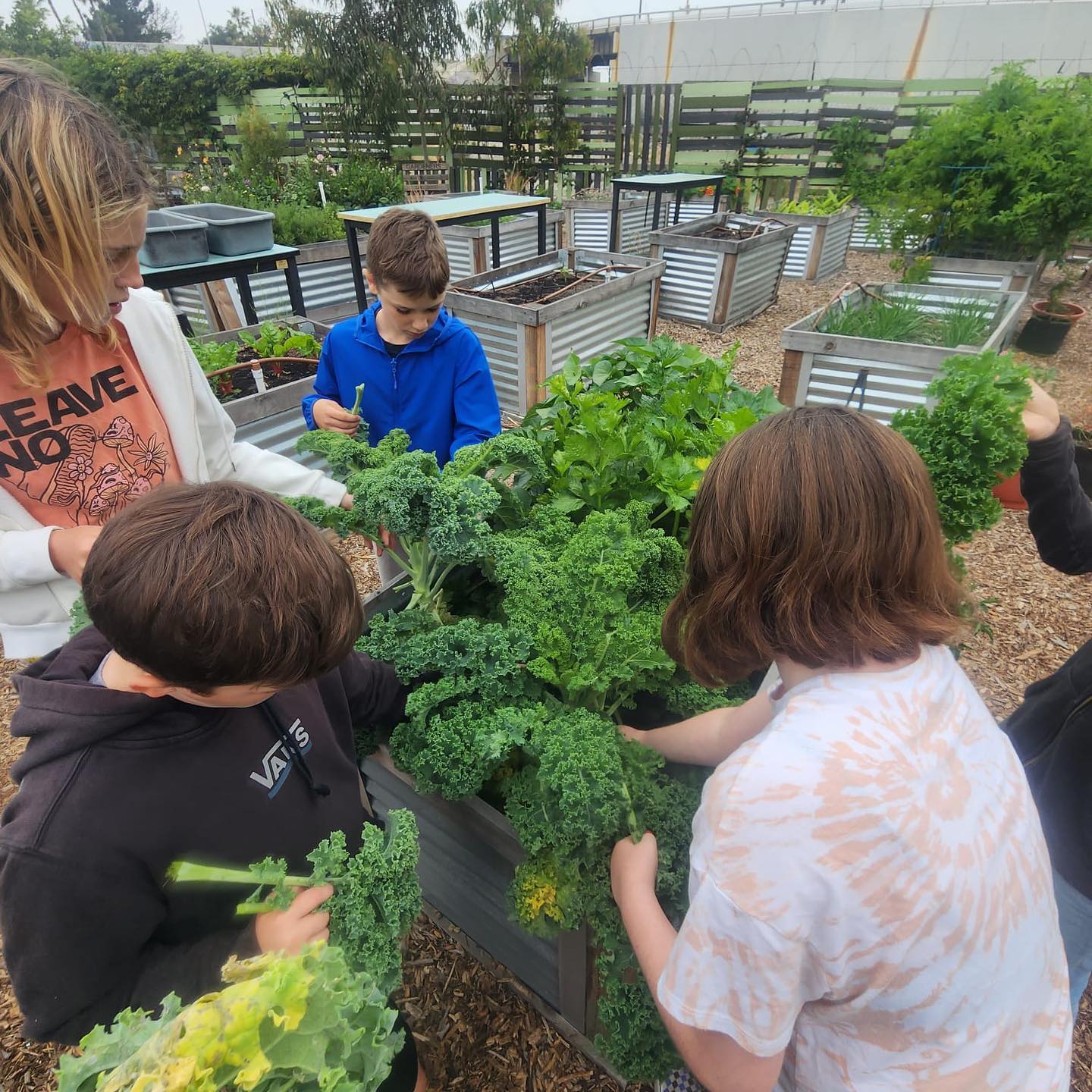
“Asking yourself, what can I do and why would I want to do that? Really having an actual reason to do it,” Feldman said. “And then it just kind of starts to really snowball because you realize one little behavior changing, one little thing leads to another thing leads to another thing, and then before you know it, you’re doing all sorts of things.”
Being able to transform the vacant lot into the beautiful garden and learning space that Sowing Seeds of Change now is, has become such a rewarding and joyful experience for Feldman. She enjoys watching her neurodiverse students particularly as they grow and develop throughout the sustainable agriculture program.
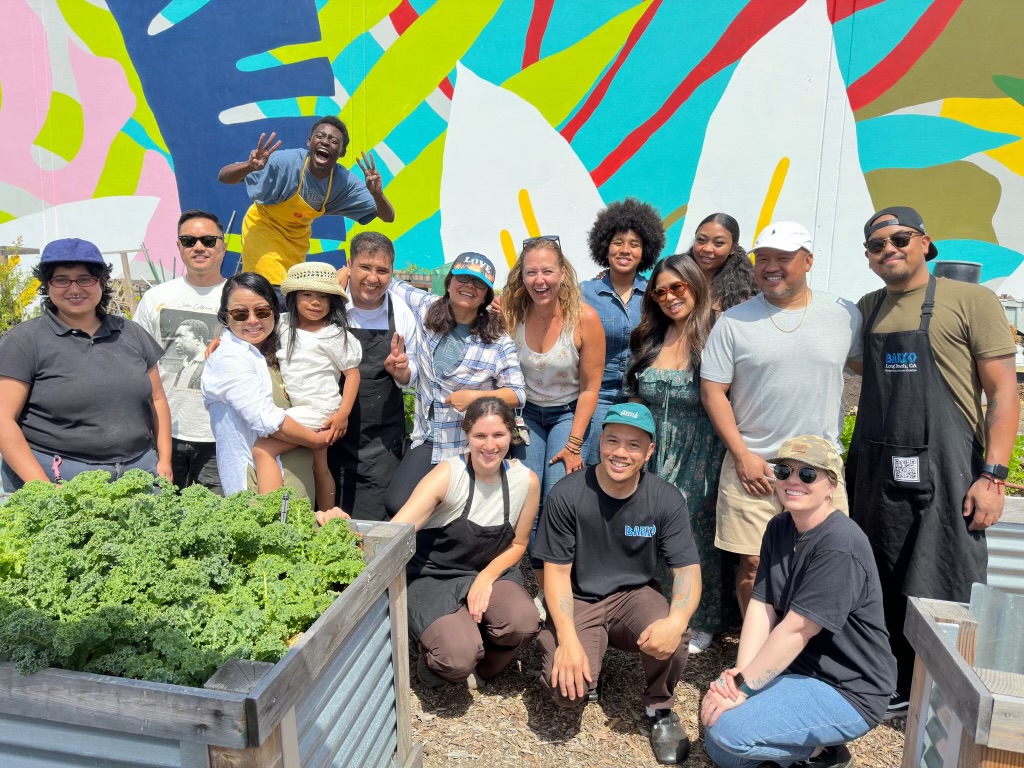
As much as Sowing Seeds of Change has grown, they are heavily reliant on grants and always in need of funding. Those looking to donate can always do so on their website sowingseedsofchange.org. Other ways you can support Sowing Seeds of Change is by sharing their story, scheduling team-building events or attending any of their other events, especially during Long Beach Gives.
In the future, Feldman hopes that they can replicate the model of Sowing Seeds of Change in other cities.
“So we hope we can get foundation funding or, some big organizations to be able to believe in the work that we’re doing and provide us with the funding necessary to expand our program to serve more people and give more,” Feldman said.




